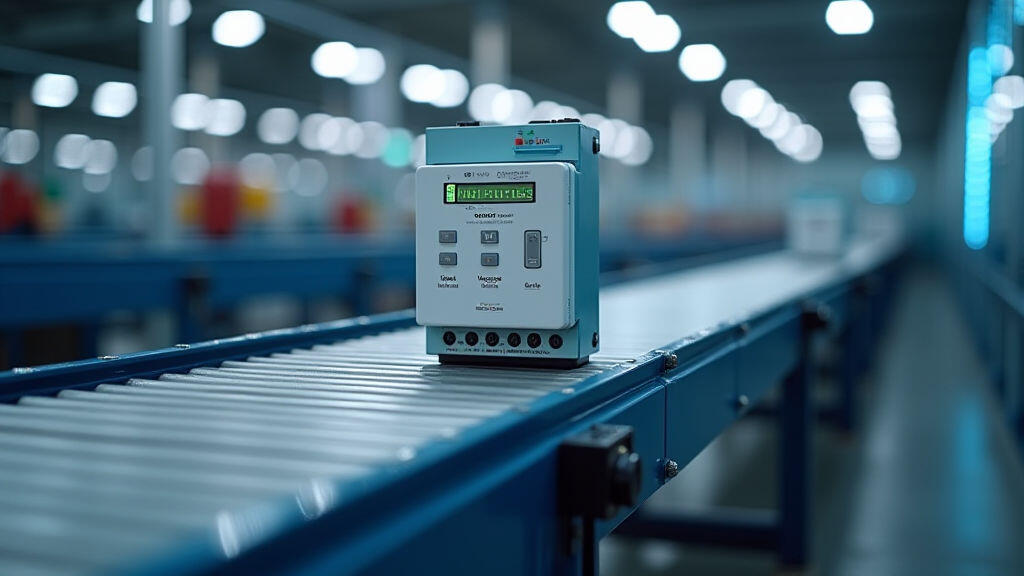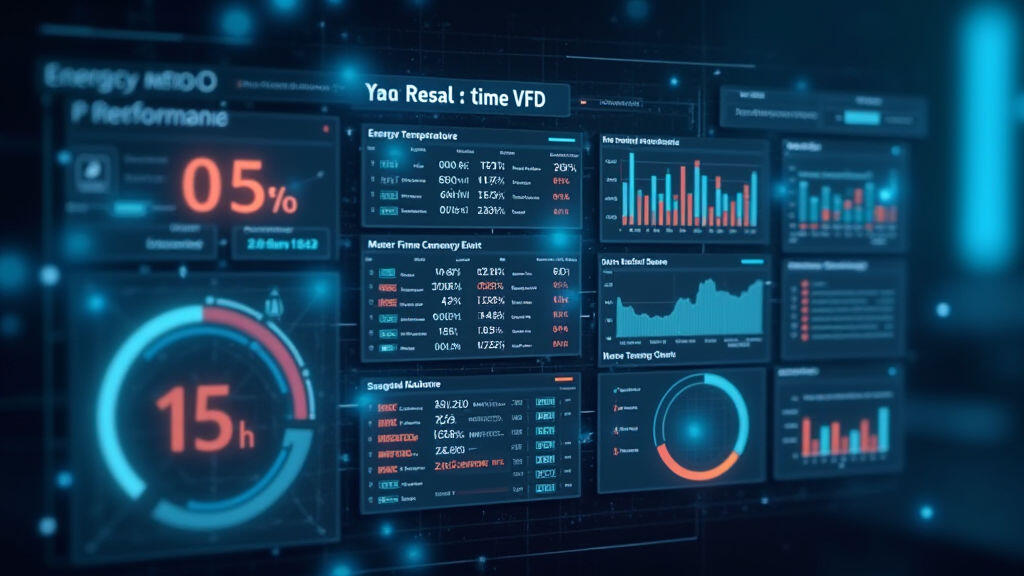
The global logistics and supply chain industry is undergoing a digital transformation at an unprecedented pace. Fueled by rising e-commerce demand, increasing pressure for faster delivery times, and the need for greater operational efficiency, companies are constantly seeking ways to optimize their processes. At the heart of many logistics operations lies a complex network of conveyor systems, and driving these systems are electric motors. This article explores why logistics and conveying manufacturers are increasingly prioritizing the performance optimization of Variable Frequency Drive (VFD) motors – and how this focus is intertwined with broader trends like Industry 4.0 and the push for sustainable operations.
Traditional motor control methods often rely on fixed-speed motors. This approach lacks the flexibility needed to address the dynamic demands of modern logistics. Conveyor systems, for instance, often require variable speeds to accommodate fluctuating loads, adjust to different product types, and optimize energy consumption during idle periods.
VFDs offer a superior solution. They allow for precise control over motor speed, torque, and energy consumption. This adaptability translates directly into several key benefits for logistics operations. Firstly, VFDs enable smoother starts and stops, reducing mechanical stress on the conveyor system and extending its lifespan. Secondly, they facilitate energy savings, a crucial consideration given the rising cost of electricity and the increasing emphasis on environmental responsibility. Finally, VFDs offer advanced control features that can enhance overall system efficiency and responsiveness.

Several factors are propelling the increased focus on VFD performance optimization within the logistics and conveying manufacturing sectors.
1. Energy Efficiency & Sustainability: One of the most significant drivers is the growing demand for energy-efficient solutions. The logistics industry is a major energy consumer, and optimizing motor performance represents a readily available opportunity to reduce the carbon footprint. VFDs allow motors to operate at the most efficient speed for a given task, minimizing energy waste. Studies show that VFDs can reduce energy consumption in conveyor systems by 20-40%, depending on the application. This not only lowers operating costs but also aligns with corporate sustainability goals and increasingly stringent environmental regulations. The concept of "green logistics" is no longer a niche trend but a core business imperative.
2. Industry 4.0 & IoT Integration: The rise of Industry 4.0, characterized by the interconnectedness of machines, data analytics, and cloud computing, is profoundly impacting logistics. VFDs are becoming increasingly integrated with Internet of Things (IoT) platforms, allowing for real-time monitoring of motor performance, predictive maintenance, and automated optimization.
Data collected from VFDs – including motor speed, current, voltage, and temperature – can be analyzed to identify inefficiencies, predict potential failures, and optimize operating parameters. This data-driven approach enables proactive maintenance, minimizing downtime and maximizing system uptime. MES-Drive, for example, offers cloud-based monitoring and analytics dashboards that provide users with actionable insights into motor performance.
3. Increased Operational Complexity: Modern logistics facilities are handling increasingly complex and diverse product flows. This necessitates greater flexibility in conveyor system control. VFDs, with their advanced control capabilities, are essential for managing these complex scenarios. The ability to dynamically adjust conveyor speeds based on real-time demand, product characteristics, and system conditions is crucial for maintaining efficiency and throughput.
4. Reduced Maintenance Costs: While often perceived as an upfront investment, VFDs can significantly reduce long-term maintenance costs. By providing soft starting and stopping capabilities, VFDs minimize mechanical stress on motors and drive components, extending their lifespan. Furthermore, the predictive maintenance capabilities enabled by IoT integration allow for preemptive repairs, preventing costly breakdowns.
The optimization of VFD performance isn't just about basic speed control. Manufacturers are increasingly adopting advanced VFD technologies to unlock even greater benefits. These include:

MES-Drive is a leading provider of high-performance VFDs and related solutions tailored for the logistics and conveying industries. Their VFDs are engineered for reliability, efficiency, and ease of integration. MES-Drive's offerings extend beyond hardware, encompassing software platforms and services designed to optimize motor performance and minimize total cost of ownership. The company places a heavy emphasis on predictive maintenance capabilities through its cloud-based monitoring system, enabling proactive adjustments for reduced downtime and enhanced operational efficiency.
Looking ahead, the focus on VFD performance optimization will only intensify. The convergence of Industry 4.0, AI, and machine learning will unlock even greater opportunities for efficiency gains. We can expect to see VFDs that are increasingly autonomous, capable of self-learning and adapting to changing operating conditions. Furthermore, the integration of VFDs with advanced robotics and autonomous vehicles will create new possibilities for optimizing logistics processes. The growing emphasis on circular economy principles also points to significant potential for VFDs to contribute to energy recovery and waste reduction within logistics operations.
In conclusion, the increasing focus on variable frequency drive motor performance optimization in logistics and conveying manufacturing is not just a trend – it's a strategic imperative. Driven by the need for energy efficiency, sustainability, and operational agility, manufacturers are embracing advanced VFD technologies and leveraging data analytics to unlock significant benefits. As the logistics industry continues to evolve, VFDs will play an increasingly critical role in driving efficiency, reducing costs, and fostering a more sustainable future. MES-Drive is well-positioned to be a key enabler in this transformation, empowering logistics companies to achieve their operational and sustainability goals. The current global focus on resource optimization makes proactive motor management, achievable with sophisticated VFD solutions like those offered by MES-Drive, a particularly relevant and valuable investment for logistics businesses.
Leave A Reply
Your email address will not be published. Required fiels are marked